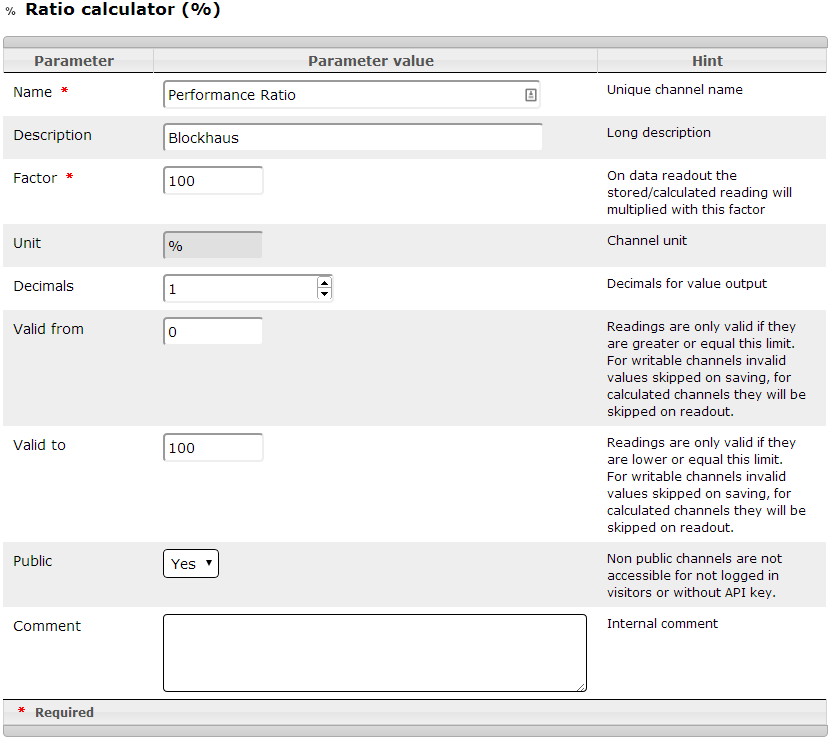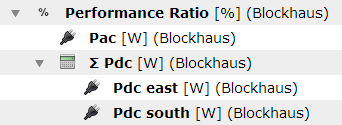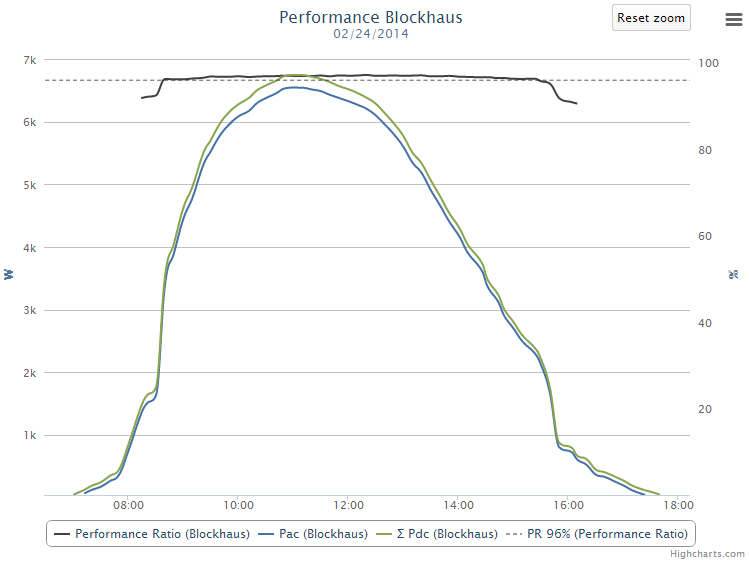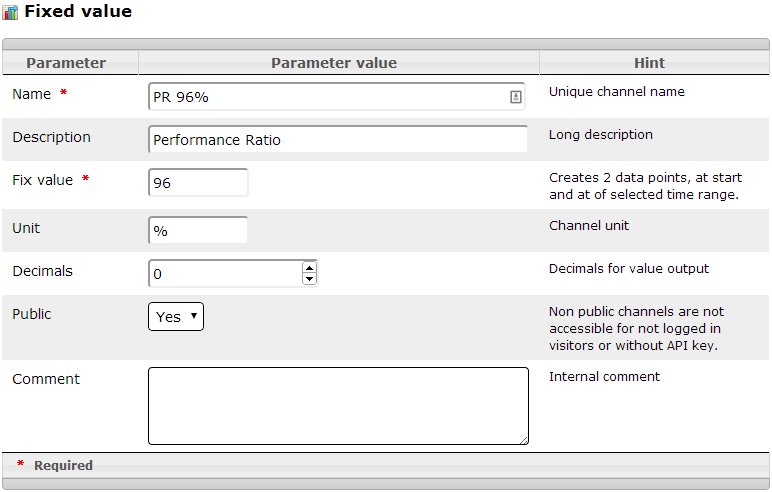Difference between revisions of "Inverter efficiency"
From PhotoVoltaic Logger new generation
m |
m (→Channel tree) |
||
| (11 intermediate revisions by the same user not shown) | |||
| Line 1: | Line 1: | ||
| − | + | {{TOCright}} | |
| − | + | <blockquote>By efficiency, we are really saying, what percentage of the power that goes into the inverter comes out as usable AC current (nothing is ever 100% efficient, there will always be some losses in the system). This efficiency figure will vary according to how much power is being used at the time, with the efficiency generally being greater when more power is used. <cite>[http://www.solar-facts.com/inverters/inverter-efficiency.php Solar-facts.com]</cite></blockquote> | |
| − | <blockquote>By efficiency, we are really saying, what percentage of the power that goes into the inverter comes out as usable AC current (nothing is ever 100% efficient, there will always be some losses in the system). | ||
| − | This efficiency figure will vary according to how much power is being used at the time, with the efficiency generally being greater when more power is used. | ||
The Inverter efficiency is calculated by: [[File:EfficiencyCalulation.png]] | The Inverter efficiency is calculated by: [[File:EfficiencyCalulation.png]] | ||
| Line 8: | Line 6: | ||
== Setup == | == Setup == | ||
| − | For this we need the special grouping channel type: [[Ratio]] | + | For this we need the special grouping channel type: [[Grouping_models#Ratio|Ratio]] |
| + | |||
[[File:RatioCalculatorChannel.png]] | [[File:RatioCalculatorChannel.png]] | ||
| + | |||
* The Ratio calculator would return in the required channel combination values between <tt>0..1</tt><br />To get readout values as percentage (<tt>0..100</tt>), set factor to <tt>100</tt>. | * The Ratio calculator would return in the required channel combination values between <tt>0..1</tt><br />To get readout values as percentage (<tt>0..100</tt>), set factor to <tt>100</tt>. | ||
| − | * The [[channel attributes#valid|valid range]] <tt>0..100</tt> avoid values values over 100%, which is | + | * The [[channel attributes#valid|valid range]] <tt>0..100</tt> avoid values values over 100%, which is here naturally impossible but can result from inaccurate readings. |
So the result will be aligned into the range. | So the result will be aligned into the range. | ||
| Line 19: | Line 19: | ||
'''''Please note:''''' | '''''Please note:''''' | ||
*The performance ratio model accepts only exact 2 sub channels for correct operation! | *The performance ratio model accepts only exact 2 sub channels for correct operation! | ||
| + | |||
| + | == Channel tree == | ||
If your inverter have more than one MPP tracker (as mine), you need also another special group to sum all P<sub>DC*</sub> up. | If your inverter have more than one MPP tracker (as mine), you need also another special group to sum all P<sub>DC*</sub> up. | ||
| − | This will be done by an [[Accumulator]] as described [[Accumulator example|here]]. | + | This will be done by an [[Grouping models#Accumulator|Accumulator]] as described [[Accumulator example|here]]. |
| + | |||
| + | Please mind the correct order of child channels as described above: | ||
| + | |||
| + | |||
| + | [[File:RatioCalculatorTree.png]] | ||
| + | |||
| + | == Charting hint == | ||
| + | |||
| + | If you want to have a more detailed result for efficiency, set the valid from attribute for example to <tt>90</tt>. | ||
| + | |||
| + | |||
| + | [[File:PRChart90.png]] | ||
| + | |||
| + | |||
| + | All values below 90% are "raised" to 90%. | ||
| + | |||
| + | The efficiency (black dashed) is mostly above 96%. This shown by a [[fix]]ed channel to get a feeling how the inverter performs: | ||
| + | |||
| + | |||
| + | [[File:Fix96.png]] | ||
| + | |||
| + | [[Category:Example]] | ||
Latest revision as of 19:29, 16 March 2014
Contents
By efficiency, we are really saying, what percentage of the power that goes into the inverter comes out as usable AC current (nothing is ever 100% efficient, there will always be some losses in the system). This efficiency figure will vary according to how much power is being used at the time, with the efficiency generally being greater when more power is used. Solar-facts.com
The Inverter efficiency is calculated by: 
Setup
For this we need the special grouping channel type: Ratio
- The Ratio calculator would return in the required channel combination values between 0..1
To get readout values as percentage (0..100), set factor to 100. - The valid range 0..100 avoid values values over 100%, which is here naturally impossible but can result from inaccurate readings.
So the result will be aligned into the range.
Please note:
- The performance ratio model accepts only exact 2 sub channels for correct operation!
Channel tree
If your inverter have more than one MPP tracker (as mine), you need also another special group to sum all PDC* up.
This will be done by an Accumulator as described here.
Please mind the correct order of child channels as described above:
Charting hint
If you want to have a more detailed result for efficiency, set the valid from attribute for example to 90.
All values below 90% are "raised" to 90%.
The efficiency (black dashed) is mostly above 96%. This shown by a fixed channel to get a feeling how the inverter performs:



